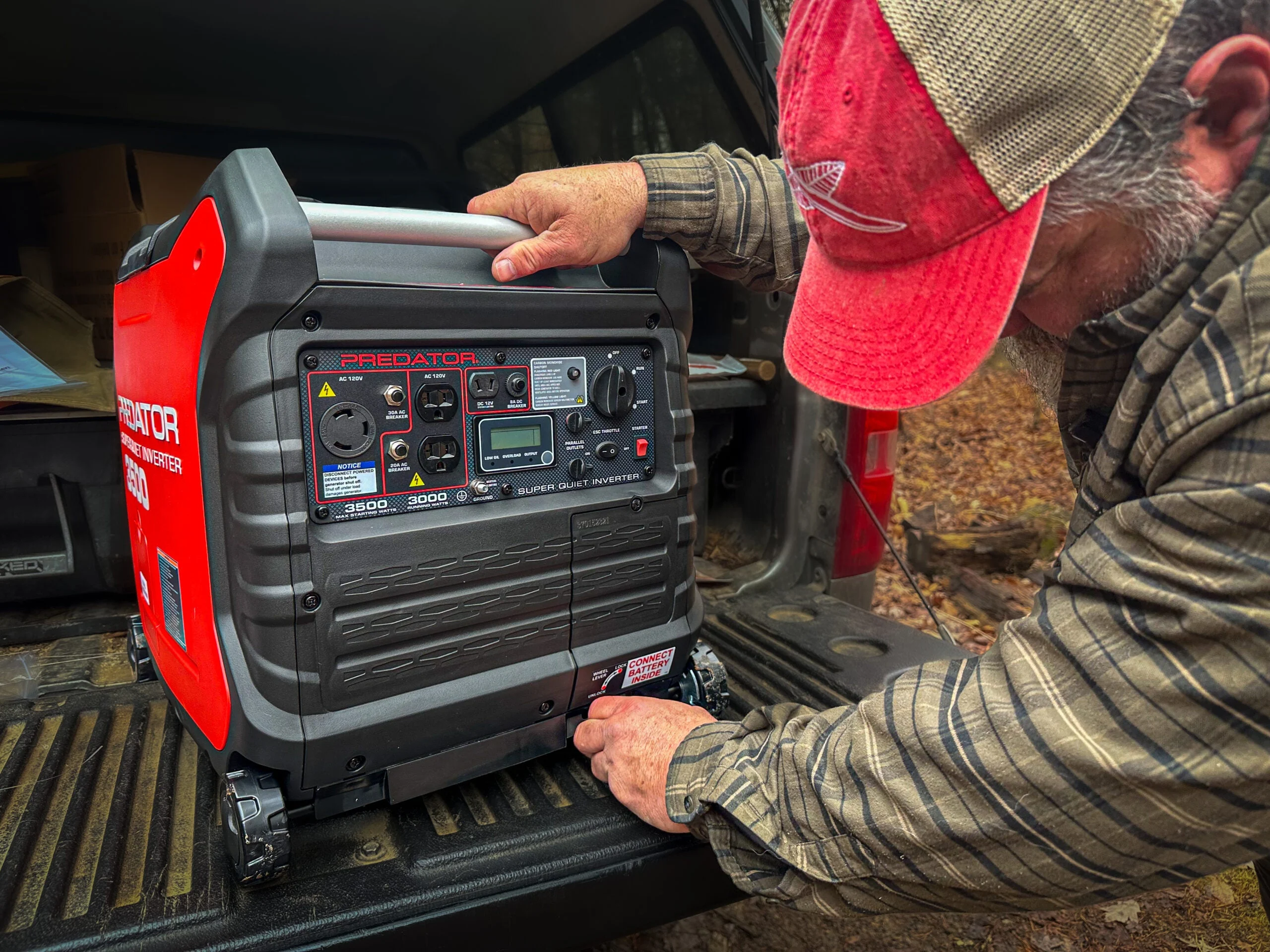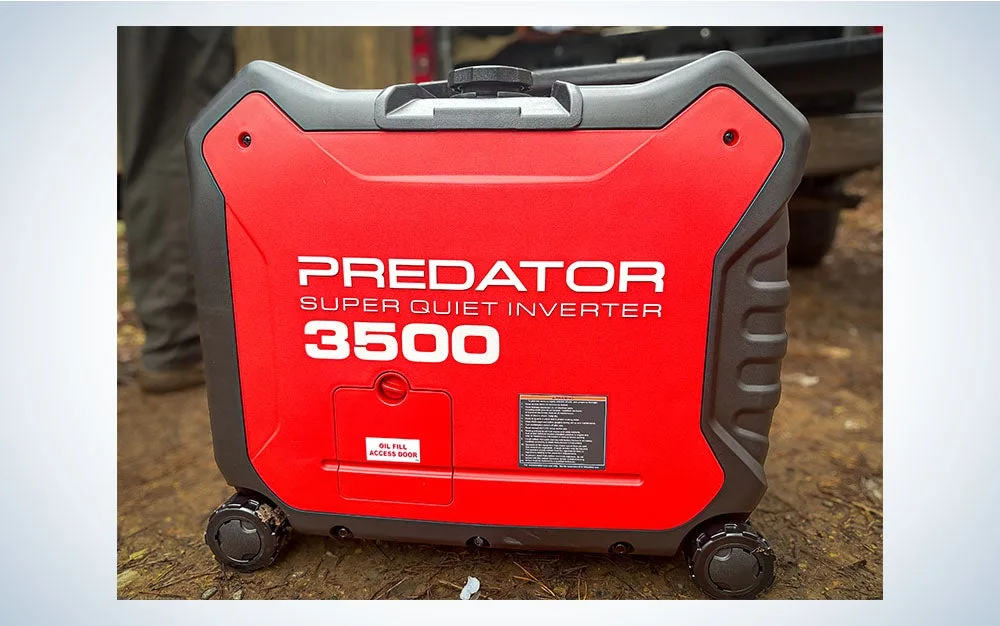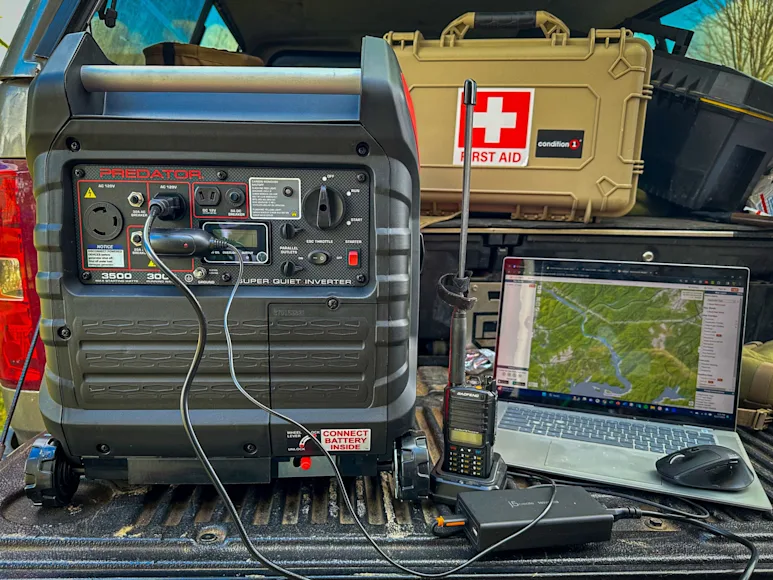Understanding the tools and technology that keep us powered during outdoor adventures and self-reliance is crucial. One such innovation, which has gained popularity for its efficiency and versatility, is the inverter generator. (Check out our round of the best inverter generators
.) Inverter generators have revolutionized how we think about portable power. Unlike traditional generators, these modern devices are designed to provide cleaner energy and operate more quietly, making them ideal for various outdoor and emergencies.
In this article, we’ll dive into what an inverter generator is, its pros and cons, whether it’s worth the investment, what size you might need, and answer some frequently asked questions. Whether you’re a camping enthusiast, a homeowner seeking backup power, or just curious about this technology, understanding inverter generators are essential in modern outdoor and emergency preparedness.
Join the 1871 Club and Subscribe to Field & Stream Magazine!
What Is an Inverter Generator?
An inverter generator is a type of portable generator that converts fuel into electricity. What sets it apart is its ability to produce clean and stable power, similar to what you get from your home outlets. It works in three stages:
It generates alternating current (AC) electricity.
Converts it into direct current (DC).
Inverts it back to AC.
This process results in a consistent electrical current safe for sensitive electronics like laptops and smartphones. Inverter generators are typically more compact and quieter than traditional generators, making them ideal for camping, tailgating, and use in residential areas. They run on various fuels, including gasoline, diesel, or propane, offering flexibility for different needs and preferences.

The author prepares to set up his inverter generator on a wilderness trip. Jennifer Caudill
**Read Next: The Best Gas Generators
**
The Pros and Cons of Inverter Generators
Pros
Clean Energy: Inverter generators produce stable and clean power, which is safe for sensitive electronics. This is an excellent option for those seeking outdoor adventure along with modern conveniences like laptops and smartphone devices.
Quiet Operation: They operate more quietly than traditional generators, making them less disruptive in peaceful outdoor settings or residential areas.
Fuel Efficiency: These generators adjust the engine speed to match the power demand, leading to better fuel efficiency and longer run times. Automatic cut-off switches are on many of them, so there is no wasted fuel when there is no pull or need for power.
Portability: Most inverter generators are compact and lightweight, making them easy to transport and store. I have two that I use for our classes and I researched several others. Most of the inverter generators I saw under 75 pounds had robust carrying handles, and those over had wheels and or built-in carts.
Lower Emissions: They often produce fewer emissions, making them a more environmentally friendly choice.
Cons
Higher Cost: Inverter generators are generally more expensive than standard generators. An average 3500-watt inverter generator will cost approximately $800, depending on the make and model.
Limited Power Output: They typically offer less power output, which may not be suitable for heavy-duty applications. This means they work well for camping and self-reliance needs with few electronics. Still, it cannot run large refrigerators and many other electronics simultaneously for extended periods.
Maintenance: All generators require regular maintenance to ensure longevity and reliability. This will include making sure you have clean fuel to run it. You will want to utilize a stabilizer if you store fuel in the generator for three months or more. Always get fresh fuel for disaster at the first hint of a hurricane, tornado season, or similar.

Is An Inverter Generator Worth the Money?
Investing in an inverter generator
depends on your specific needs. An inverter generator is worth considering if you require clean, stable power for sensitive electronics, value quiet operation, and need a portable solution. The initial higher cost is often offset by the benefits of fuel efficiency, lower emissions, and the protection it offers to delicate devices. An inverter generator presents a compelling choice for outdoor enthusiasts, campers, or those needing a reliable backup power source for home use.
What Size Inverter Generator Should You Get?
Choosing the right size for an inverter generator depends on your power needs. List the devices you plan to run simultaneously and tally their wattage requirements. Generally, a generator with 1,000 to 2,000 watts is suitable for camping or powering small appliances. A large laptop may use around 100 watts of power, for example. For more significant needs, like home backup for essential items, a 3,000 to 4,000-watt generator may be necessary. For example, the average type of refrigerator utilizes 300-400 watts of power. Always choose a model with a slightly higher capacity than your calculated need to ensure reliability and longevity.
FAQs
What is the difference between regular and inverter generators?
Regular generators provide a constant flow of power at a fixed speed, while inverter generators adjust the speed to match the demand, resulting in cleaner, more efficient power.
Are inverters as good as generators?
Inverters are a type of generator. They’re often better for sensitive electronics and quieter but may not offer as much power as traditional generators.
Why would I need an inverter generator?
You’d need one for activities that require clean, stable power in a quiet, portable form, like camping, outdoor events, or as a home backup for sensitive electronics. A typical generator with its irregular power output is problematic for sensitive devices.
Can I run a refrigerator on an inverter?
Yes, you can run a refrigerator on an inverter generator, but ensure the generator’s wattage capacity can handle the refrigerator’s starting and running power requirements. Good planning for typical disaster readiness is a dorm-sized mini-fridge that can hold bare essentials (medicine) for long periods without reliable electrical power.


